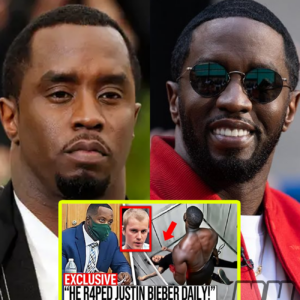Trump’s Legal Team Requests Lifting of Gag Order Amidst Conviction Fallout

Introduction
Former President Donald Trump’s legal team has recently made headlines by sending an urgent letter to Justice Juan Merchan, requesting the lifting of the gag order that remains in effect following Trump’s conviction on 34 felony counts. The gag order, which prohibits Trump from making extrajudicial statements that threaten the jury, witnesses, or the judge’s family members, has been a significant point of contention.
Trump’s lawyers argue that with the trial concluded, the gag order no longer has a valid basis. This development comes as Trump continues to navigate the legal and political ramifications of his recent criminal conviction.
The Gag Order and Its Implications
The gag order, imposed to maintain the integrity of the criminal proceedings, specifically restricts Trump from making statements that could endanger the safety of trial participants or undermine the judicial process. Trump’s repeated violations of the gag order have been well-documented, with numerous instances of contempt recorded. Despite these infractions, his legal team argues that the restrictions are now unnecessary since the trial has concluded.
The letter, signed by Trump’s attorney Todd Blanche, presents several arguments for lifting the gag order. It highlights that the original justification for the order was to protect the integrity of the trial, a concern that should no longer be relevant post-conviction. Furthermore, the letter asserts that continuing the gag order infringes on Trump’s First Amendment rights, especially given his status as a leading candidate in the 2024 presidential election.
Key Arguments in the Letter
Blanche’s letter to Justice Merchan outlines several key points:
- Post-Trial Context: The letter emphasizes that with the trial over, the primary concerns that justified the gag order are no longer applicable. It argues that without the imminent threat to jurors and witnesses, there is no need to continue restricting Trump’s speech.
First Amendment Rights: The defense asserts that the gag order unduly restricts Trump’s First Amendment rights. They argue that as a presidential candidate, Trump should be able to engage in unrestricted campaign advocacy, a core aspect of democratic electoral processes.
Campaign and Debate Considerations: The letter also mentions the upcoming presidential debate scheduled for June 27, 2024, and President Biden’s recent public comments, suggesting that these factors necessitate a reassessment of the gag order. Trump’s team implies that his ability to participate fully in the debate and campaign activities would be hindered by the continued restrictions.
Legal Precedents Cited
In support of their argument, Trump’s lawyers cite several legal precedents, including:
Republican Party of Minnesota v. White (2002): This case highlighted the importance of free debate on the qualifications of candidates within electoral processes, stressing that such debates are central to First Amendment freedoms.
Landmark Communications v. Virginia: This case discussed the implications of enforced silence, suggesting that restricting speech in the name of preserving judicial dignity could generate more negative sentiment and undermine respect for the judiciary.
Criticisms and Counterarguments
Critics of the request argue that lifting the gag order could lead to further inflammatory statements from Trump, which could exacerbate tensions and potentially endanger individuals involved in the case. Given Trump’s history of violating the gag order, there is concern that removing the restrictions might embolden him to continue his attacks on the judiciary and other trial participants.
Additionally, some legal experts suggest that Trump’s behavior post-conviction, including his attacks on the jury, witnesses, and prosecutors, demonstrates a lack of accountability and remorse. These factors are likely to be considered during his sentencing, scheduled for July 11, 2024. Justice Merchan will need to weigh the potential risks of lifting the gag order against the arguments presented by Trump’s legal team.
Potential Outcomes
The outcome of this request remains uncertain. Justice Merchan could choose to maintain the gag order, partially lift it, or remove it entirely based on the arguments and evidence presented by both the defense and the prosecution.
Given the high-profile nature of the case and the ongoing political implications, the decision is likely to attract significant public and media attention.
Conclusion
As Donald Trump continues to navigate the fallout from his criminal conviction, the request to lift the gag order represents a critical moment in his legal and political journey.
The arguments presented by his legal team highlight the complex interplay between free speech rights and the need to protect the integrity of the judicial process. With the next steps in the case closely watched by supporters and critics alike, Justice Merchan’s decision will have far-reaching implications for Trump’s future campaign activities and legal strategy.
News
(VIDEO) Celebs that P Diddy EXPLOITED for Cash
P Diddy and the Dark Side of the Entertainment Industry The entertainment industry is no stranger to scandal and controversy, but the recent revelations surrounding P Diddy (Sean Combs) have brought to light a web of disturbing allegations and connections…
(VIDEO) Kevin Hart IN TEARS After New Leaks EXPOSE Him At Diddy’s After Parties!!
Kevin Hart: A Complex Journey Through Fame, Scandal, and Personal Growth Kevin Hart, the renowned comedian and actor, has led a life marked by both incredible professional success and deeply personal scandals. His journey from selling sneakers to becoming one…
(VIDEO) “He Ruined My Life” Former Diddy Employees TEAM UP To EXPOSE Him!
The Dark Side of Fame: Allegations Against Diddy and the Revelations from Former Employees The music industry is often glamorized for its glitz and glamour, but behind the scenes, it can harbor dark secrets and troubling behavior. Recently, Sean “Diddy”…
(VIDEO) “He’s Why Justin Bieber Is DEPRESSED!” Undercover FBI Agent EXPOSES Diddy
The Tumultuous History of Snoop Dogg, P. Diddy, and the East Coast-West Coast Rivalry Hip-hop history is fraught with feuds, friendships, and ever-changing alliances. Central to many of these stories are iconic figures such as Snoop Dogg and P. Diddy…
(VIDEO) “Diddy Did Usher Dirty Forever” Snoop Dogg EXPOSES Sean Combs!
The Tumultuous History of Snoop Dogg, P. Diddy, and the East Coast-West Coast Rivalry Hip-hop history is fraught with feuds, friendships, and ever-changing alliances. Central to many of these stories are iconic figures such as Snoop Dogg and P. Diddy…
(VIDEO) Undercover CIA Agent EXPOSES Diddy & Jay Z!
The Fall of P. Diddy: A Dismantling of Credibility and the Unfolding Legal Crisis Introduction In recent years, Sean “P. Diddy” Combs has found himself at the epicenter of numerous controversies and legal battles that have significantly tarnished his once-polished…
End of content
No more pages to load











